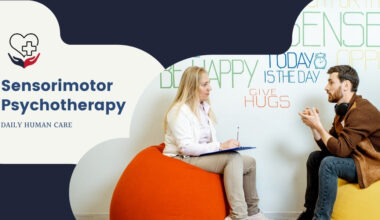Table of Contents
Role of Rehabilitation in Mental Health

Mental health rehabilitation is essential for people with mental health issues to recover control over their lives, acquire coping mechanisms, and improve their quality of life. This article explores the many facets of mental health rehabilitation and its profound effects on people’s well-being.
Understanding Mental Health Rehabilitation
Recovery from mental illness can be aided by various therapy methods, coping mechanisms, and support systems, referred to as “mental health rehabilitation.” Individuals and mental health experts work together to develop a personalized strategy that considers their unique needs and difficulties. This all-encompassing strategy goes beyond symptom control; instead, it emphasizes people’s autonomy, functionality, and general life happiness to speed up their transition to a better mental and physical state.
The Importance of Individualized Care
The cornerstone of mental health therapy is customization, which recognizes that every person’s experiences, symptoms, and ambitions are distinctive. Recognizing the value of support is important, especially in the realm of addiction recovery. If you or someone close to you is seeking assistance for substance abuse, considering a drug and alcohol treatment center is a thoughtful choice. Because everyone is unique, it is crucial to develop tailored treatments considering their capabilities, challenges, and aspirations. Mental health professionals interact with people to create approaches suitable for each person’s unique condition. Prioritizing individual requirements makes rehab a true partnership by ensuring each phase aligns with the individual’s path to recovery and growth.
Therapeutic Modalities in Mental Health Rehabilitation
Mental health rehabilitation uses a wide range of therapy techniques to promote recovery successfully. These can include individual therapy, where people meet individually to discuss their difficulties and assets. Although cognitive-behavioral therapy (CBT) and dialectical behavior therapy (DBT) provide people with useful tools to control their ideas, emotions, and actions, group therapy promotes connection and shared experiences. Creative and contemplative options for people to manage their mental health journeys include mindfulness exercises, music therapy, and art therapy.
Skill Development and Functional Restoration
Giving people practical skills that improve their capacity to navigate daily life successfully is one of the main objectives of mental health rehabilitation. People with good communication skills can articulate their wants and feelings, while those with good problem-solving abilities may approach problems systematically. Overall functional rehabilitation is facilitated by time management, stress management strategies, and social interaction abilities, enabling people to participate more completely in their surroundings and everyday activities.
Transitioning to Community Living
The transition to free community life is included in mental health recovery and the controlled setting of the rehabilitation program. In this phase, people are getting ready to successfully integrate into their communities by finding appropriate housing options, looking into job prospects, and developing social support systems. To build a solid foundation and a sense of belonging, the ultimate goal is to support a smooth transition that enables people to apply the skills they have learned in rehabilitation to their daily life.
Continuum of Care and Long-Term Support
Recovery from mental illness is a dynamic process that continues after a program is finished. Rehabilitation stresses the need for a continuum of care and continuing assistance rather than coming to a stop after a planned schedule. Regular check-ins, involvement in outpatient therapy, availability of support groups, and cooperation with mental health specialists may all be required. Long-term support acts as a safety net, assisting people in maintaining their gains and overcoming any obstacles they may face as they continue their path to mental health.
Overcoming Stigma and Promoting Community Integration
Rehabilitation for mental health issues seeks to treat internal and external problems, such as societal stigma. Promoting community inclusion and lowering the stigma attached to mental health conditions are both parts of the rehabilitation process. Raising awareness, planning instructional activities, and enticing people to share their experiences are a few ways to do this. Individuals may question prejudices, promote understanding, and build a more accepting culture that supports everyone’s path to mental wellness by engaging in communal life.
Conclusion
People with mental health issues can lead satisfying lives with the help of a thorough and individualized procedure called mental health rehabilitation. Mental health rehabilitation tackles the many facets of recovery through tailored care, a holistic approach, therapy modalities, development of skills, integration into the community, family participation, and stigma reduction initiatives. It allows people to regain control of their lives, develop resilience, or accept a future marked by happiness, meaning, and social inclusion.

